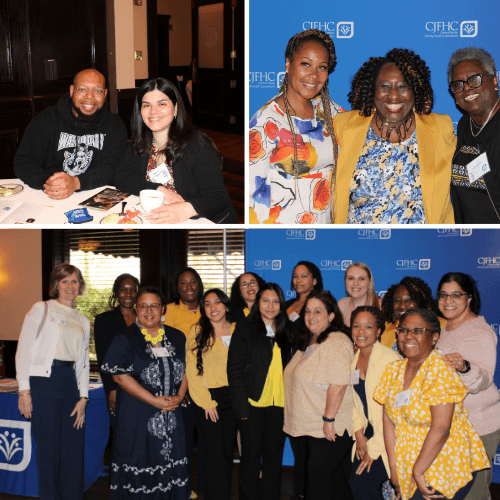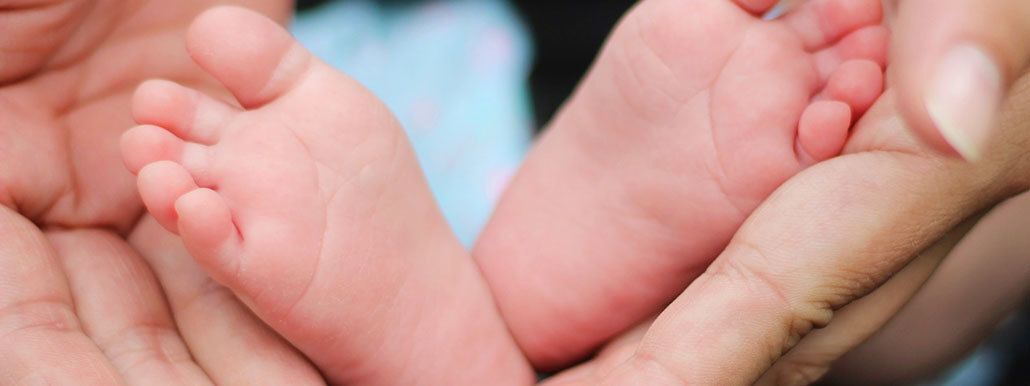
Click Here To Register for The 2025 Black Maternal Health Conference
Central Jersey Family Health Consortium’s Healthy Women, Healthy Families program hosted the Black Maternal Health Conference titled "Turning up the Volume by Partnering with a Purpose: A Focus on Black Maternal Health.” The conference highlights the urgent need to address the stark inequities in maternal healthcare that disproportionately affect black and brown mothers. With powerful speakers and emotional testimonies, the event shed light on the systemic issues in healthcare and society that contribute to the alarming statistics: black mothers are five times more likely to die from childbirth-related causes than their white counterparts, with 90% of these deaths being preventable.
The conference featured an array of distinguished speakers, including keynote speakers Shawnee Benton Gibson, Trashaun M. Powell, Dr. Ndidi Amutah-Onukagha, and Peter Bullock, each bringing a unique perspective and expertise to the discussion.
Shawnee Benton Gibson, CEO of Spirit of a Woman and co-founder of the ARIAH Foundation, shared her journey of loss and advocacy following the tragic death of her daughter, Shamony Gibson, due to maternal mortality. In her impassioned speech, Gibson emphasized the importance of collective action and partnership in addressing the crisis in black maternal health. "We must partner with power," she declared, “we must speak up. That’s how the volume is raised, and that’s how we address the focus we have on black maternal health,” highlighting the need for collective voices to effect meaningful change. Her speech focused on collective impact; she named all of the black women before her in her family line, emphasizing the power of names and voices, and how sharing stories is part of the power of raising voices. She compared this to the well-known African proverb, “Many hands make light work.” When black women are heard, and their stories are amplified, the work to dismantle a system built on bias, racism, and white supremacy culture is shared. Shawnee’s voice is amplified through her name, her ancestors, and the work she continues to do.
Trashaun M. Powell, an advocate for maternal health and survivor of preeclampsia, underscored the importance of representation and advocacy in maternal healthcare. After her own traumatic birth experience with preeclampsia, Powell found support with the Preeclampsia Foundation. She quickly realized, however, that work still needed to be done. “I found the Preeclampsia Foundation, and they had a support group…their signature event, the Promise Walk…but when I looked around, there was no one who looked like me. There wasn’t a black woman in the space. If black women are 3-5 times more likely to die in childbirth, why is there not a woman of color next to me? Why is there not someone advocating like me so that people know that preeclampsia can be deadly?” Powell's advocacy work has focused on ensuring that black voices are heard in discussions surrounding maternal health, echoing Gibson's call for unity and solidarity in the fight for equitable healthcare. She used her connections in New Jersey to host one of the most successful walks in the Foundation's history, reaching out to friends, family, her line sisters, and other community contacts.
Dr. Ndidi Amutah-Onukagha, founder of the Center of Black Maternal Health and Reproductive Justice, delivered a poignant presentation examining the intersection of socio-economic inequity and maternal health disparities. She went in-depth on how socio-economic factors don’t just impact access to living spaces and rent; they also impact access to food, resources, prenatal care, and hospital care. Dr. Amutah-Onukagha emphasized the historical and ongoing impact of systemic racism on black maternal health outcomes. “If Simms is considered the father [of gynecology],” Dr. Amutah-Onukagha said, “then black women are the mothers.”
Peter Bullock, known as the Dad Doula, provided insight into the importance of paternal involvement in maternal healthcare. As the founder of Hey Black Dad, Bullock has been a vocal advocate for fathers' roles in supporting their partners during pregnancy and childbirth, highlighting the need for comprehensive support systems for families. “I make space,” Bullock says, “for fathers in the pregnancy journey,” helping fathers navigate finances, insurance, and other supports for their pregnant partner, to ensure that the birthing journey is a shared journey. A Trenton native, Peter Bullock provides support for fathers across the country.
The conference also featured courageous testimonies from women who shared their traumatic birth experiences, shedding light on the systemic failures and biases within the healthcare system. Satia Colin, Deidra Manson, and Crystal D. Charley courageously shared their stories, underscoring the urgent need for systemic change and accountability. The common theme amongst all three testimonies was the lack of empathy and belief from medical professionals, as all three women voiced concerns to their doctors and all three saw those concerns brushed aside. Satia had been admitted to the hospital and as her birth plan deteriorated, had been sent into a rushed c-section that she had previously requested but was denied. The rush c-section caused her daughter to be cut during the procedure and caused Satia undue emotional damage. Deidra’s complications came after the birth of her child, where her intense chest pain was routinely dismissed as indigestion or a normal aftereffect of having just given birth. It wasn’t until after she was discharged when emergency services were called and she was taken to a different hospital that she was diagnosed as having a heart attack. The trauma of this event left lasting trauma, anxiety, and fear for the healthcare system that is supposed to protect new mothers and babies. Crystal D. Charley, founder of Melanin and Maternal Wellness, community organizer, and activist wrapped up the speakers' portion of the conference with a strong and clear message: the work has been started but it is not over. Only through partnership, coming together, and lifting the voices of black and brown mothers and experiences, saying their names, and telling their stories do we bring the changes needed to make giving birth, the most natural and universal human experience, equitable and safe for all.
Dr. Judith Francis, organizer of the event and Program Manager of Healthy Women Healthy Families, reflected on the event, “This is our second annual conference.” She said, “The first was titled 'CHOOSE TO IMPROVE.' This year’s focus was to engage and implement more community and organization partnership involvement to address the specific needs, challenges, and experiences related to Black Maternal health.” Dr. Francis was stunned by how quickly the event had sold out this year, “The conference was completely sold out in March, which attests to the need for participants wanting to gain more knowledge to raise awareness about issues facing Black Maternal Health. Issues such as dispelling myths, reducing stigmas, and empowering others to take proactive steps to improve their health outcomes. This was a stellar event, from the guest speakers to the client testimonies. I can’t wait to see how we can top this for next year.”
The Black Maternal Health Conference serves as a powerful call to action, amplifying voices and igniting a movement to address the crisis in black maternal health. As the conference concluded, participants left inspired and determined to continue the fight for equitable and safe maternal healthcare for all. For more information about the Healthy Women, Healthy Families program, visit their webpage. To stay connected with all of the Consortium’s programming, including next year's Black Maternal Health Conference, sign up for our newsletter and follow us on Facebook, Instagram, and LinkedIn.


